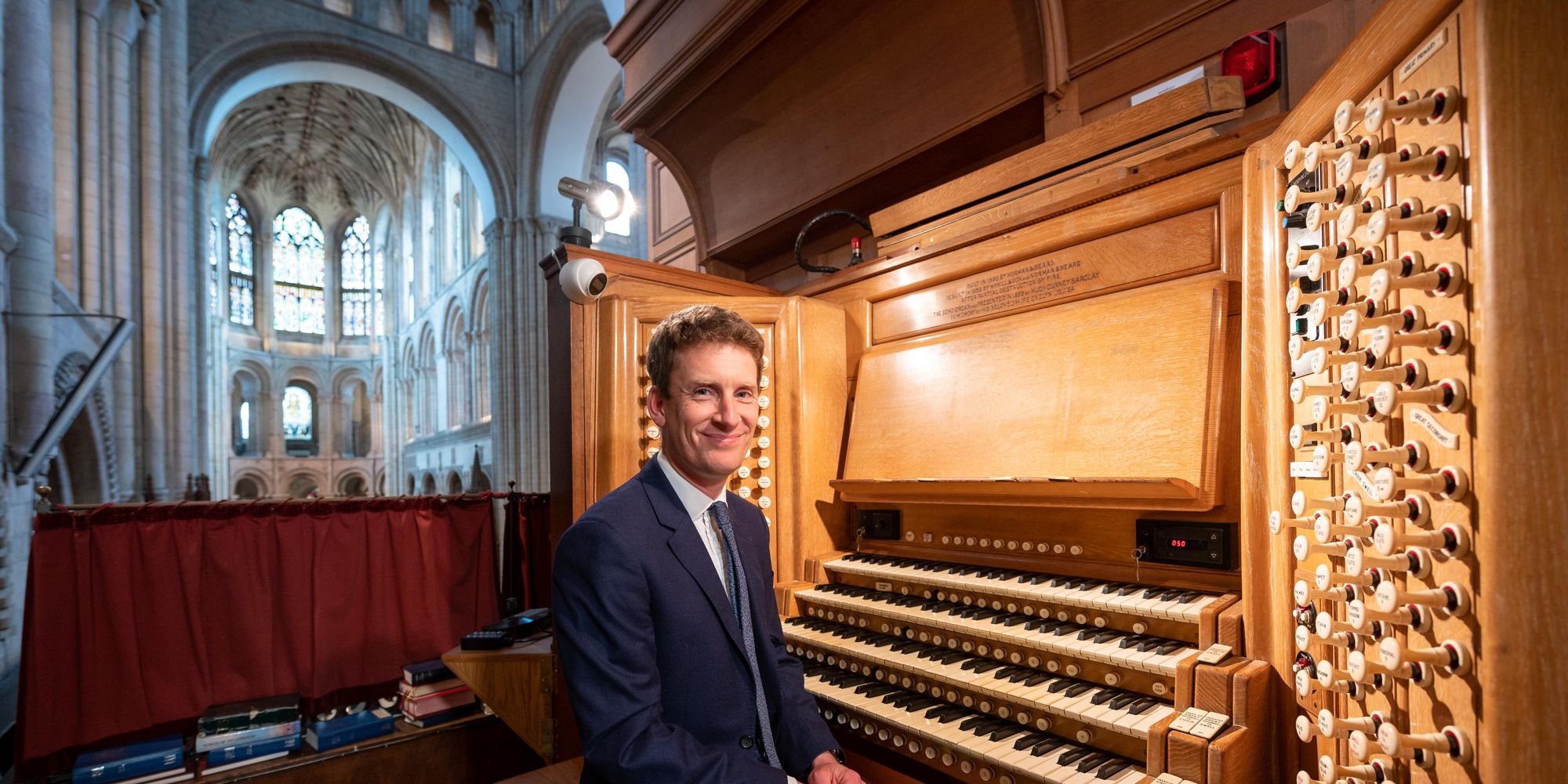One of Handel's most extravagantly dramatic oratorios
01 Nov 2019

By Ashley Grote, Master of Music - 01 November 2019
Filled with frogs, locusts, hailstones and rivers of blood, Israel in Egypt is one of Handel's most extravagantly dramatic oratorios. Placing the chorus in the spotlight, Handel uses the collective voices to tell the story of an entire people - the Israelites - demanding greater virtuosity than ever before in some thrilling choral writing.

Israel in Egypt has an interesting history which, typically for Handel, involves the re-working of previous material and earlier versions to produce the oratorio in the format that will be performed by Norwich Cathedral Chamber Choir on Saturday 16 November.
On the death of Queen Caroline, Consort of King George II, Handel composed a long and magnificent anthem The Ways of Zion do mourn for the funeral service in Westminster Abbey in 1737. Collaborating with his friend and supporter Charles Jennens (who assembled the libretto for Messiah), Handel had the idea of changing the text of this funeral anthem into The Lamentations of the Israelites for the Death of Joseph – and thus the first part of an oratorio about the deliverance of the Israelites from slavery in Egypt under the leadership of Moses. Jennens assembled biblical texts for Handel to write the rest of what was to become Israel in Egypt.
Handel wrote quickly. ‘Moses Song’ (what is Part 2 of the performance tonight) was penned between 1 and 11 October 1738, setting text from verses 1-21 of Chapter 15 of Exodus. This is essentially a celebration of the victory of the Israelites, as Pharoah’s horses and chariots are ‘thrown into the sea’. No doubt it is the infectious, galloping rhythm of “the horse and his rider” in the opening and closing choruses of this second part that will most probably linger in the listener’s ear, with its resounding trumpets, sackbuts and drums.
Only a few days after completing ‘Moses’ Song’ Handel began what he called ‘Part ye 2 of Exodus’ – suggesting that perhaps ‘Exodus’ was to be the original title of the whole oratorio. It is this section that describes the Israelites’ bondage in Egypt and the terrible plagues that then followed – rivers of blood, frogs, flies and lice, hailstones, darkness and the slaughter of the first-born. This dramatic libretto presented Handel with the opportunity for some of his most graphic musical word-painting: one can hear in the music, for instance, the leaping frogs, the swarming flies and the thunderous hail. A pastoral chorus follows which sees Moses and the Israelites ‘led forth like sheep’, through the Red Sea, only to see the Egyptians overwhelmed behind them by the rolling, tumultuous waters.
Israel in Egypt initially received a mixed reception: 18th century audiences used to the variety of Italian opera found the long succession of chorus writing unappealing. Part 1 – the revised funeral anthem – was quickly dropped and, when the work was published in 1771, it appeared only in a two-part version: that which will be performed by Norwich Cathedral Chamber Choir.
It is a pleasure, as always, to welcome Norwich Baroque to the Cathedral and collaborate with them on another magnificent work. I do hope many of you will be able to join us for this special performance on Saturday 16 November. Finally, I would like to record my thanks, on behalf of the Dean and Chapter, to Ian and Sue Butterworth for their generous support of this concert.
